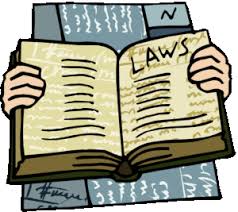 December 2014
December 2014
Condo owners are expected and required to share in the common expenses of the corporation.
What happens when some are unable to pay their monthly common expenses perhaps due to job loss or illness? Or perhaps a condo owner has refused to pay their monthly common expenses as part of a dispute.
This is called falling into arrears. When it occurs, the condo board of directors has a legal obligation to register a lien. There is an expectation in the Condo Act that the condo corporation will seek recovery of the full amount due plus legal and other fees.
Ontario condo corporations have a powerful debt collection mechanism. They are able to collect common expenses in priority to most other creditors. However, this right is dependent on the proper filing of notices and a certificate of lien being registered within 90 days of default. The rules are simple but missing a deadline or improper documentation can jeopardize the condo corporation’s priority and ability to collect the entire debt.
Few things are more problematic for a condo owner than having a lien registered against their unit. The condo corporation has based its budget on receiving payment of the common expenses and has an obligation to ensure that payments are received on time.
A lien can give the condominium corporation power of sale rights for a condo unit. Commencement of power of sale proceedings can have costs in the thousands of dollars for which the unit owner is likely responsible.
The process for collecting this debt is called the Condo Lien Process. At times, some condo boards or management may choose to circumvent this process, perhaps due to compassion, and grant leeway in making these payments. This can result in problems for condo boards or management.
Every condo owner is expected and required to pay their common expenses when due. When there is a delay in making payment collection efforts should commence. A lien should be filed within 90 days of the first default although it is advisable to establish a policy of making this filing much earlier. This protects the condominium corporation’s legal priority to collect the entire debt. If no lien is filed, or it is not filed on time, the board or management firm becomes responsible for paying any uncollectable common expenses to the corporation.
Prior to a lien being registered, the unit owner should receive written notice to make all outstanding payments which may include a fee for the notice. A lien can be registered if outstanding payments are not made. The unit owner then becomes responsible for all costs associated with collection of the outstanding amount.
If too much time has elapsed since the monthly common expenses were due, or the debt has been allowed to accumulate each month, collection becomes that much more difficult. Perhaps an owner does not have sufficient income to pay the debt or lacks equity in the unit. The end result is that a condo board may be required to write off the debt as uncollectible. This forces other condo owners to make up the shortfall. If the other condo owners oppose accepting this obligation, management or the board may be held financially responsible for their decision to allow the debt to become uncollectable.



